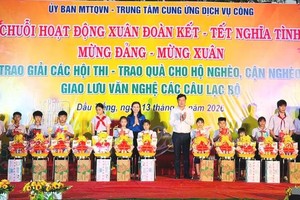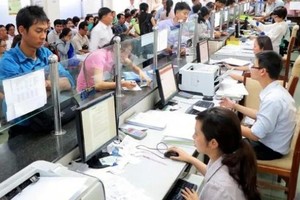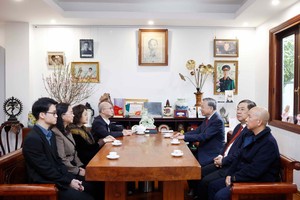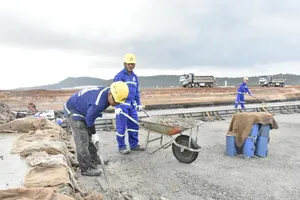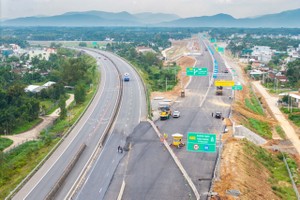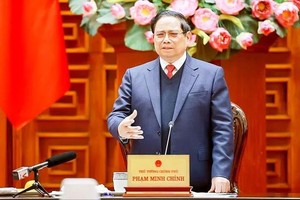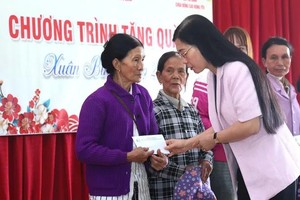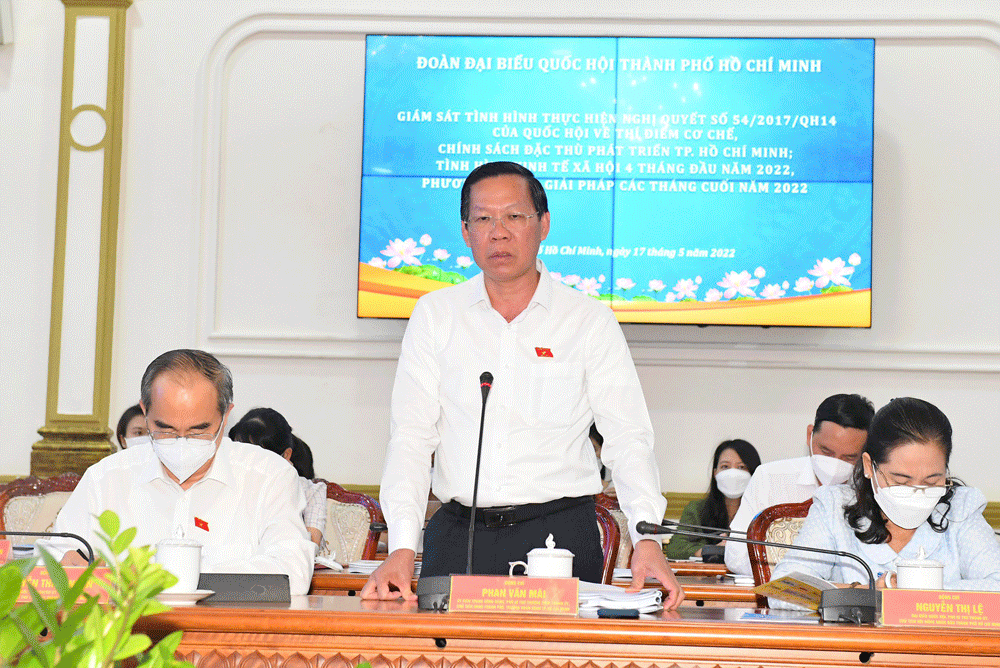 Mr. Mai speaks at the meeting (Photo: SGGP)
Mr. Mai speaks at the meeting (Photo: SGGP)
On the afternoon of May 17, the Ho Chi Minh City National Assembly Delegation supervised the implementation of Resolution 54/2017 of the National Assembly on piloting specific mechanisms and policies for the city’s development and social economy in the first four months of the year and the benefits and solutions in the last months of 2022.
Speaking at the meeting, Vice Chairman of Ho Chi Minh City People's Committee Vo Van Hoan emphasized that the city’s socio-economic situation in the first four months of 2022 has many bright spots. Importantly, the Covid-19 epidemic has been under control as from April 8 to now, the southern largest city has not recorded any deaths.
The city's economy continued to rebound and recover strongly. In the first four months, the total state budget revenue reached more than VND186,000 billion, reaching more than 43 percent of the estimate.
Regarding the implementation of the Resolution 54, the municipal People's Committee has implemented 21 specific contents and projects. Of which, the city has issued a decision on investment policy in five group-A projects using the city budget with a total investment of VND12,900 billion.
The specific mechanism in land management empowers the city to decide the use purpose change of rice land from 10 hectares or more, helping the city save time. From 2018 to now, the People's Council of Ho Chi Minh City has approved 32 projects with a total area of more than 1,800 hectares, whereas three years ago, it submitted 76 projects to the Prime Minister, but only 21 projects were approved to change the use purpose.
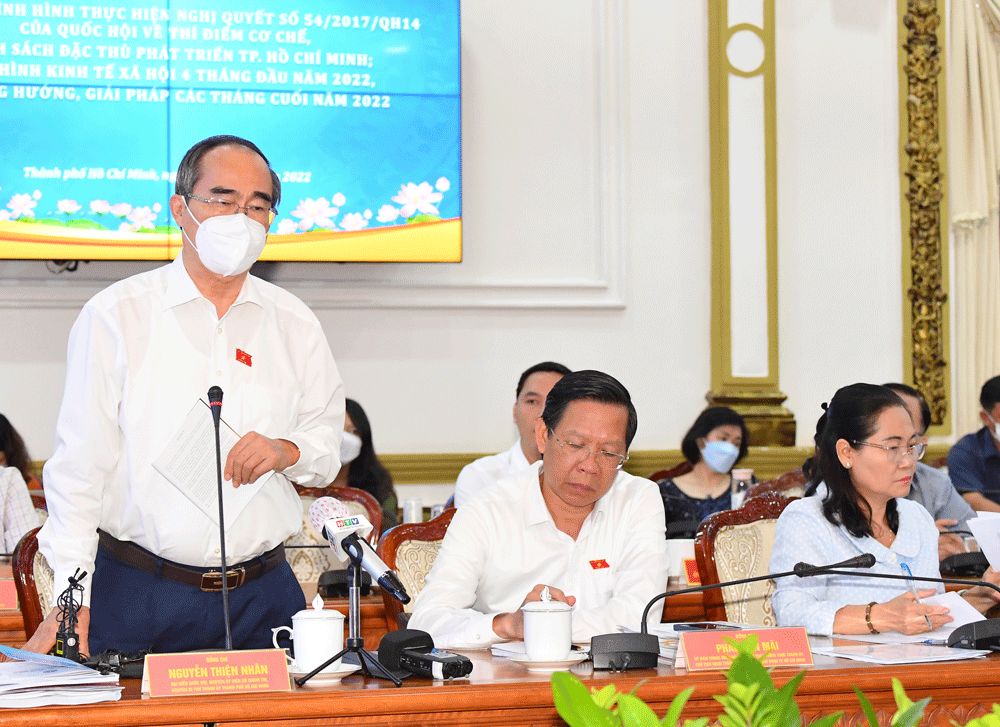 Deputy Nguyen Thien Nhan at the meeting (Photo: SGGP)
Deputy Nguyen Thien Nhan at the meeting (Photo: SGGP)
Additionally, the city also collected more than VND132 billion in environmental protection fees to industrial wastewater.
However, in addition to some positive results, most of the remaining specific mechanisms and policies on financial management in Resolution 54 aim to increase HCMC's revenue have not been fully implemented yet. The projects that have been approved by the People's Council of Ho Chi Minh City on investment policies are either behind schedule or have not been carried out. The city still has no revenue from land use levy when selling public assets attached to the land or from equitization, or divestment of state capital.
The municipal People's Committee proposed the National Assembly consider promulgating a Resolution to replace Resolution 54 so that Ho Chi Minh City can continue to implement specific mechanisms and policies for rapid and sustainable development.
This resolution includes recommendations to replace Decree No. 93/2001 of the Government on decentralization of some fields for HCMC and mechanisms that the city needs support from the central government to better promote its advantages and potential, including specific mechanisms and policies for the development of Thu Duc City.
At the monitoring meeting, Chairman of the Ho Chi Minh City People's Committee Phan Van Mai suggested that the delegates focus on discussing and finding solutions for the city’s social-economic recovery and commenting on the development of a new draft resolution to replace Resolution 54 before the city submits it to the National Assembly.
At the meeting, the National Assembly deputies said that the People's Committee needs to deeply analyze the reasons why the implementation of Resolution 54 has not generated the expected results. Deputy Nguyen Thien Nhan said that the Resolution 54 has increased the city’s autonomy in deciding investment policies for group A, land use purposes, and adjustment of taxes and fees.
The Resolution 54 also helps the city increase resources for investment and development. Specifically, the city has been permit to increase the rate of budget retention 21 percent, but the new rate has just been applied from this year. The sale of public assets has not been implemented, according to deputy Nhan, partly because central agencies have not worked closely together. He pointed out that Ho Chi Minh City recommended several things but responsible ministries just have feedback after one year. Plus, the equitization has not been guided by the Government, and the land price can’t be determined.
According to Deputy Nguyen Thien Nhan, many related ministries must be responsible for late feedback. Ho Chi Minh City has implemented the Resolution 54 but there are restrictions in development, that is because resources have not increased much. The first two years of implementation were drastic, but mainly preparatory work. Right after that, Ho Chi Minh City had two years to cope with the Covid-19 epidemic, which had a great impact.
Adding further analysis of the problem, deputy Nguyen Thi Le raised the problem, after the People's Council in Ho Chi Minh City issued a Resolution on investment policies, the next steps such as land acquisition, investor selection, and bidding were still slow and not well prepared. Additionally, the municipal People's Committee has not yet been determined in adjusting and canceling projects that have not been implemented out of the annual land-use plan. Therefore, she proposed that the City People's Committee needs to clearly determine which projects continue and which ones stop to return the benefits to the people, especially reviewing projects and works that are still under investigation, with many opinions and recommendations of residents.
Last but not least, the city needs to launch an awareness campaign on land reclamation.
Vice Chairman of the city People's Committee Vo Van Hoan said that the authorities are preparing to collect opinions from the National Assembly deputies of the Central and Ho Chi Minh City, experts, scientists, officials, and people to finalize the final report of Resolution 16 of the Politburo and Resolution 54 of the National Assembly. At the same time, the city administration is developing a new, more comprehensive resolution to submit to the Politburo and the National Assembly.
As for the remaining problem, Mr. Vo Van Hoan affirmed that the City People's Committee will have a solution for each.
Concluding the monitoring session, Deputy Head of the specialized delegation of the Ho Chi Minh City National Assembly Deputies' Delegation Van Thi Bach Tuyet suggested that the People's Committee focus on analyzing and clarifying the causes and responsibilities for the remaining problems in order to serve as a basis for formulating new policies.
Regarding the investment project to build the Ring Road 3, Director of the Transportation Works Construction Investment Project Management Authority of HCMC Luong Minh Phuc said that the Ring Road 3 with a length of 91.6km is the main road connecting the satellite towns of Ho Chi Minh City with the Southern Key Economic Zone. Currently, the Southern Province of Binh Duong has constructed 15.3km, so around there are 76.3km left to do.
About 3,863 households will be affected under the implementation of the project. Some 1,476 households will receive compensation for resettlement including 741 households in HCMC. The localities have prepared locations, and the number of plots and apartments for resettlement, ensuring the interests of the affected people. It is scheduled that four lane road will be open to traffic by the end of 2025 - early 2026 to celebrate the city’s 12th Party Congress.
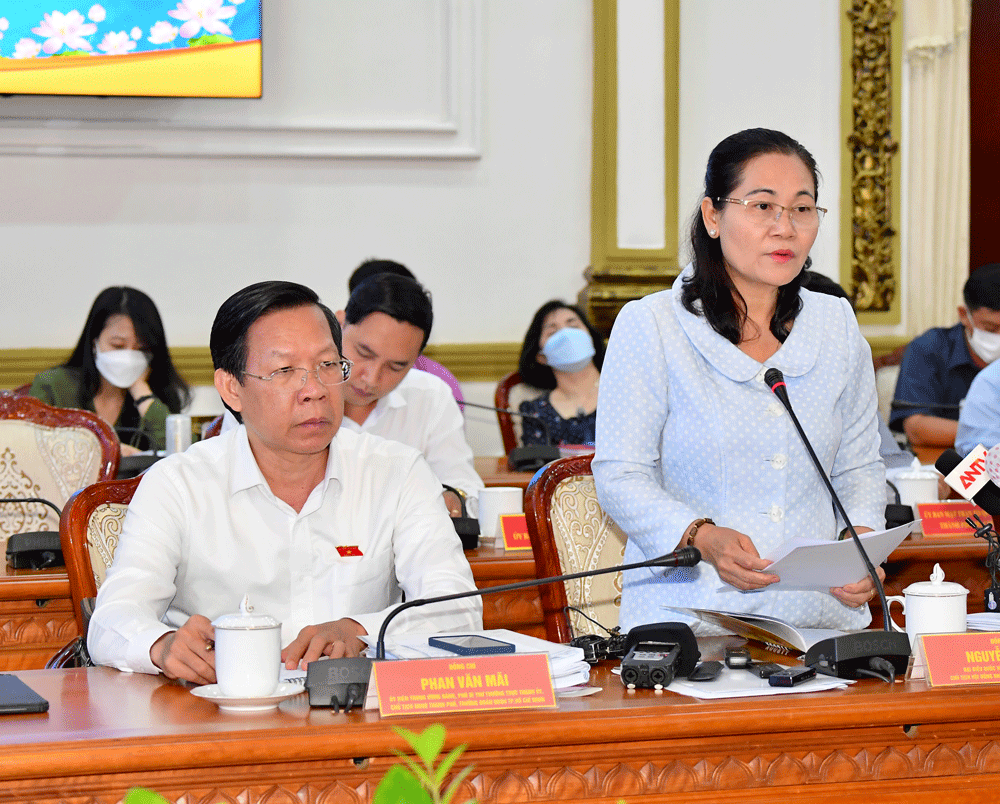 Chairwoman of the People's Council Nguyen Thi Le speaks at the meeting (Photo: SGGP)
Chairwoman of the People's Council Nguyen Thi Le speaks at the meeting (Photo: SGGP)
The municipal and provincial people's committees have proposed the National Assembly allow flexible use of central budget capital and the local budget capital to implement projects in the period 2021-2025 and the period 2026-2030. Specifically, the allocation of capital from the central budget and the local budget at the rate of 50 percent-50 percent of the total investment capital of component projects in Ho Chi Minh City and other provinces, especially in the Mekong Delta Province of Long An, this rate is 75 percent - 25 percent.
Chairman of the Ho Chi Minh City People's Committee cum Head of the Ho Chi Minh City National Assembly Deputies' Delegation Phan Van Mai chaired the conference. Also attending were former Secretary of HCMC Party Committee Nguyen Thien Nhan and Chairwoman of the HCMC People's Council Nguyen Thi Le.





